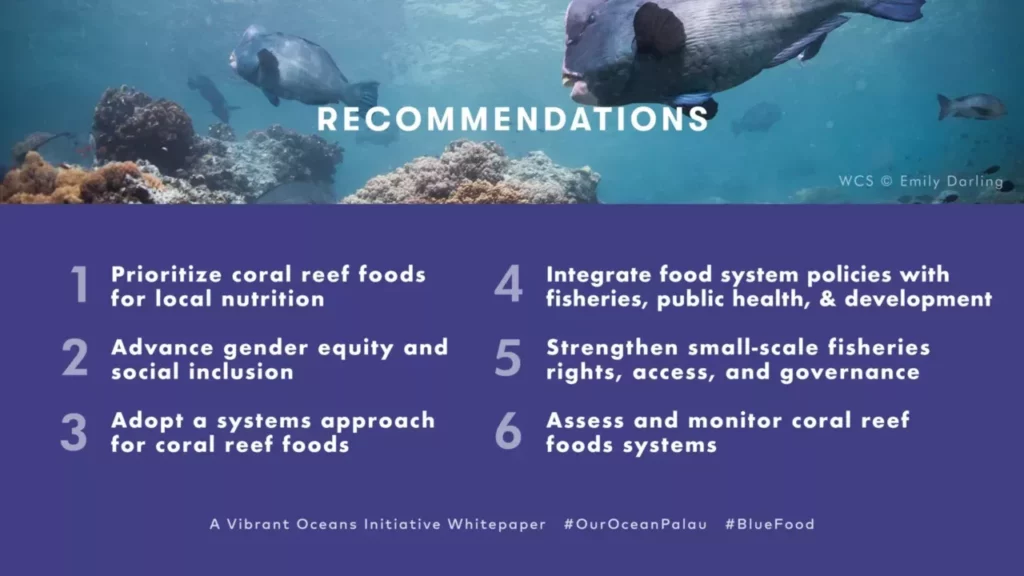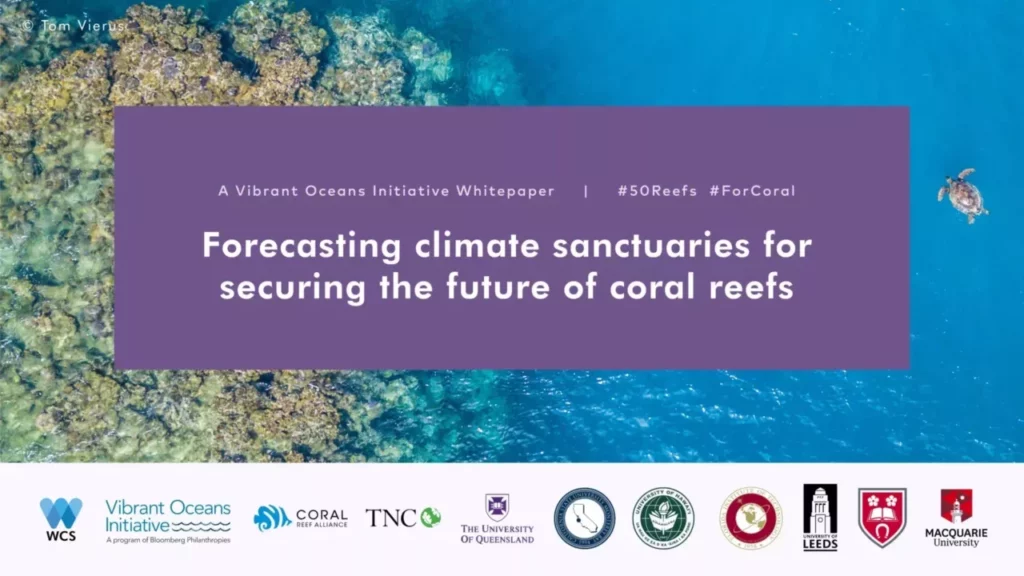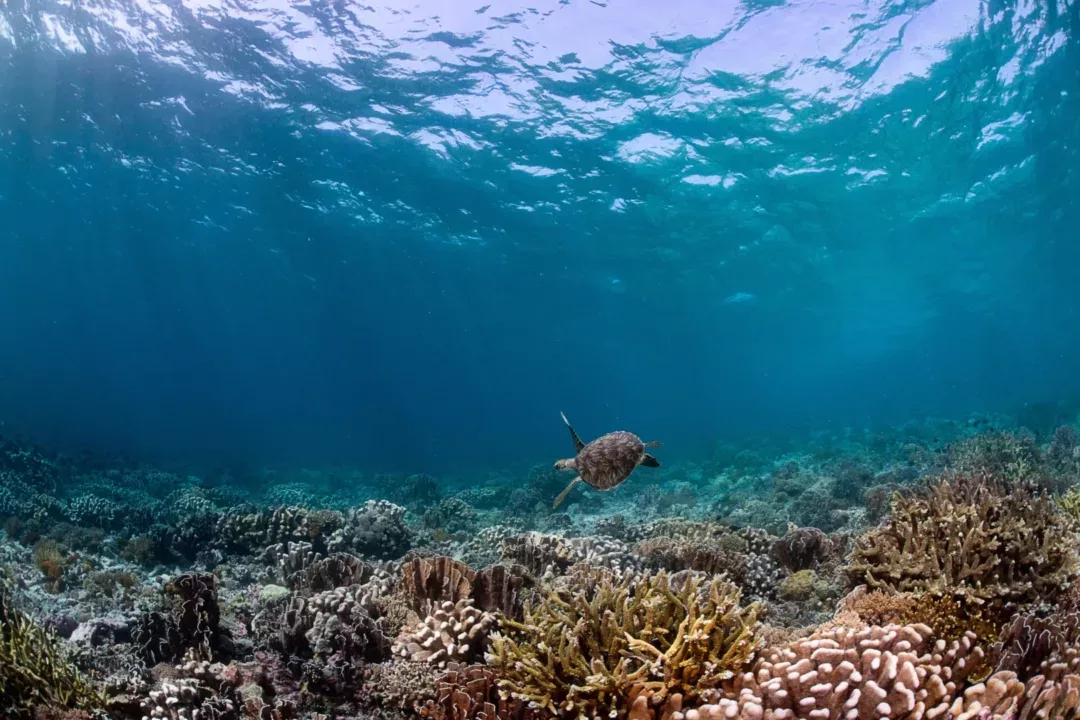This April, at the occasion of Our Ocean Conference in Palau, ICRI member the Wildlife Conservation Society (WCS) released two whitepapers on coral reefs as part of their involvement in the Vibrant Oceans Initiative.
The first, The Role of Coral Reef Small-Scale Fisheries for Addressing Malnutrition and Avoiding Biodiversity Loss, highlights how integrated management of coral reef foods can help address both malnutrition and biodiversity loss. The second whitepaper, Forecasting Climate Sanctuaries for Securing the Future of Coral Reefs, proposes new ways to address climate sanctuaries for tropical coral reefs.
 The Role of Coral Reefs Small-Scale Fisheries for Addressing Malnutrition and Avoiding Biodiversity Loss first gives an outline of the current understanding of the nutritional benefits of coral reefs foods, assesses the potential of coral reef small-scale fisheries to enhance food security and avoid biodiversity loss, and promotes the development of nutrition-sensitive coral reef governance to benefit both people and biodiversity.
The Role of Coral Reefs Small-Scale Fisheries for Addressing Malnutrition and Avoiding Biodiversity Loss first gives an outline of the current understanding of the nutritional benefits of coral reefs foods, assesses the potential of coral reef small-scale fisheries to enhance food security and avoid biodiversity loss, and promotes the development of nutrition-sensitive coral reef governance to benefit both people and biodiversity.
It concludes with the following management recommendations to enhance food security and biodiversity in coral reef small-scale fisheries:


The second whitepaper, Forecasting Climate Sanctuaries for Securing the Future of Coral Reefs, outlines several ways that the science of coral reef sanctuaries can be improved, and suggest approaches to identify new climate sanctuaries, based on the 50 Reefs Portfolio of 2018.
The WCS Whitepaper proposes to expand the 50 Reefs approach into three types of climate change sanctuaries: avoidance, resistance, and recovery refugia. While previous efforts have typically focused on avoidance sanctuaries, defined as coral reef locations that have until now avoided climate-change related stresses and are predicted to experience less future acceleration of stresses (e.g., the 50 Reefs), research shows that there is a renewed urgency to safeguard locations that can also display resistance to climate exposure or show rapid recovery after bleaching events.
Emphasis is also given to the need to support monitoring efforts to help test, improve and predict future climate refuges for coral reefs, such as the work of the Global Coral Reef Monitoring Network (GCRMN), ICRI’s operational network.
The whitepaper concludes with the following recommendations for the way forward for climate sanctuaries:


